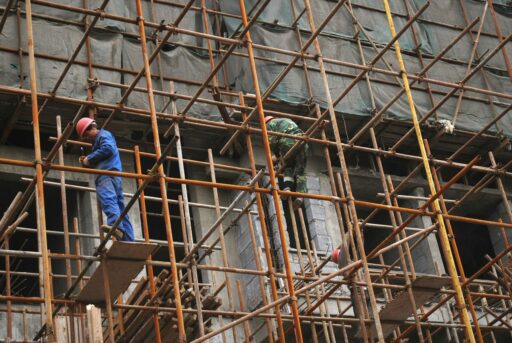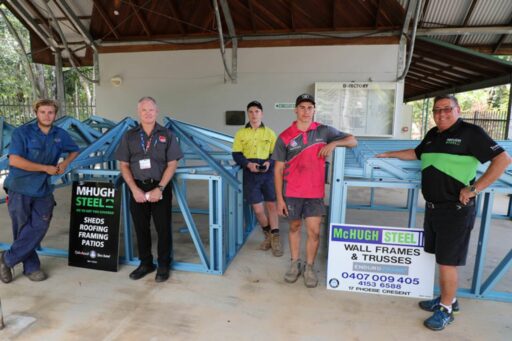When it comes to protecting your home, your roof plays a crucial role. It shields you from the elements and ensures your living space remains safe and comfortable. Therefore, selecting a reliable roofing contractor is not a decision to be taken lightly. With a myriad of roofing services available, finding qualified roofers who are trustworthy and experienced can seem daunting. This comprehensive guide will provide expert tips and a roofing contractor checklist to help you navigate the selection process with confidence.
Key Takeaways
- Verifying roofing contractor credentials is vital; ensure they have the necessary certifications, training, and insurance coverage.
- Utilize a thorough selection strategy, including comparing quotes, evaluating past projects, and checking reviews to gauge reliability.
- Consider local factors such as regional weather challenges and specific services offered by roofers in Virginia localities.
- Go beyond the basics by interviewing potential contractors, assessing the quality of materials used, and ensuring clear communication.
- Make an informed decision by following a comprehensive checklist and choosing a contractor who values your investment in your home.
Understanding Roofing Contractor Credentials

Essential Certifications and Training
When selecting a roofing contractor, ensure they have the necessary certifications and training. This is a fundamental step in guaranteeing the quality and safety of the work to be performed on your home. Roofing contractors should be licensed and insured, which not only protects you but also indicates their adherence to industry standards.
Credentials are a testament to a contractor’s expertise and their commitment to adhering to the highest industry standards.
Here is a checklist to help you verify a contractor’s qualifications:
- Confirm that the contractor is licensed to operate in your state.
- Check for certifications from recognized industry leaders such as GAF and Owens Corning.
- Inquire about the contractor’s participation in ongoing training and professional development.
Remember, a reputable contractor will be transparent about their qualifications and happy to provide evidence of their certifications.
Insurance and Liability Considerations
When selecting a roofing contractor, it’s imperative to ensure they carry adequate liability insurance. This insurance is a safeguard against potential financial liabilities that could arise from accidents or damages during the roofing project. A standard practice is to look for contractors with a liability policy that provides at least $1,000,000 in protection.
- Ask about liability insurance: Confirm that the contractor has sufficient coverage.
- Inquire about state licensing: Verify that the contractor is licensed to operate in Virginia.
- Discuss warranties: Understand the scope of warranties offered for their work.
- Plan for contingencies: Find out how the contractor addresses unforeseen issues.
Choosing a fully insured and licensed contractor is not just about compliance; it’s about protecting your investment and ensuring a professional and legally sound service. Always verify the contractor’s credentials with the relevant regulatory bodies before making a commitment.
Warranties and Workmanship Guarantees
When selecting a roofing contractor, understanding the nuances of warranties and workmanship guarantees is crucial. These assurances provide a safety net for homeowners, ensuring that any defects or issues with the roofing job are addressed without additional costs.
Workmanship warranties specifically cover the labor and installation quality provided by the contractor. Should problems arise due to improper installation, these warranties are designed to cover the associated costs. On the other hand, material warranties deal with defects in the roofing materials themselves, offering coverage for expenses related to the removal and replacement of faulty items.
Some contractors offer lifetime warranties, which, while reassuring, do not imply an everlasting roof. These typically cover material defects under certain terms and conditions. Additionally, manufacturer’s warranties may apply to the products used, providing another layer of protection.
It’s essential to carefully review the terms and conditions of any warranty offered, as they can vary significantly between contractors and manufacturers. Pay close attention to the duration of the warranty, what is covered, and the process for filing a claim.
Understanding these warranties and guarantees can help you navigate coverage and choices, particularly in regions like Northern Virginia where weather can be a factor in roof longevity.
Strategies for Selecting Roofing Contractors

Comparing Quotes and Services
When selecting a roofing contractor, comparing quotes and services is a critical step. It’s not just about finding the lowest price, but ensuring you receive the best value. Begin by obtaining multiple quotes to assess the market rates and understand the scope of services offered by different contractors.
- Price and Value: While the cost is a significant factor, the value provided for that cost is paramount. Look beyond the bottom line to what’s included in the quote.
- Safety Protocols: Ensure the contractor adheres to safety standards and uses the appropriate equipment.
- Warranties: Opt for contractors who offer comprehensive warranties, signaling confidence in their workmanship.
Remember, a lower quote might not always mean a better deal. Consider the quality of materials, the contractor’s reputation, and the specifics of the service they provide.
Finally, compare the details of each quote carefully. Here’s a simplified example of how to structure your comparison:
| Contractor | Price | Warranty | Safety Compliance |
|---|---|---|---|
| A | $X | 5 years | Yes |
| B | $Y | 10 years | Yes |
| C | $Z | 2 years | No |
By meticulously evaluating these factors, you can make an informed decision that balances cost with quality and safety.
Evaluating Experience and Past Projects
When it comes to roofing, experience is a non-negotiable asset. Contractors with a long history in the business have not only honed their skills but also understand the nuances of both residential and commercial properties. They are adept at foreseeing complications and delivering solutions that stand the test of time.
Transparency, accreditations, and customer service are pivotal in discerning the most suitable contractor for your needs. An experienced contractor’s reputation is a reflection of their commitment to quality and reliability.
Here’s a quick checklist to help you evaluate a contractor’s experience:
- Inquire about the number of years they’ve been in the industry.
- Ask for a portfolio of past projects to assess their expertise.
- Check for accreditations and professional training.
- Read through online reviews, looking for detailed and specific feedback.
- Consider the breadth of issues they’ve tackled and the solutions provided.
Remember, a contractor with a robust track record and positive feedback from previous clients is more likely to deliver exceptional service on your project.
Checking References and Reviews
When selecting a roofing contractor, checking references and reviews is a critical step in ensuring you’re making an informed decision. By reaching out to previous customers, you can gather firsthand accounts of their experiences with the contractor. Ask for a list of references and take the time to contact them, inquiring about the quality of work, timeliness, and communication throughout the project.
Customer reviews on the company’s website, social media pages, and review sites such as Yelp and Google Reviews can provide a wealth of information. Look for patterns in feedback that indicate the contractor’s strengths and weaknesses. Positive reviews often highlight satisfaction with the contractor’s workmanship and customer service, while negative reviews can reveal potential red flags.
It’s essential to approach reviews with a critical eye, considering both the content and the context of each review. A single negative review shouldn’t necessarily disqualify a contractor, but a pattern of similar complaints might be cause for concern.
Remember, the goal is to find a roofing contractor who has consistently demonstrated reliability and quality. Use the insights gained from references and reviews to guide your selection process.
Navigating Local Roofing Options

Finding Roofers in Your Virginia Locality
When you begin your search for a reliable roofing contractor in Virginia, it’s crucial to start by looking at local options. Local contractors are more likely to be familiar with regional building codes and weather patterns, which can significantly affect the quality and longevity of your roofing project.
Here’s a list of localities where you can find roofing contractors in Virginia:
- Poquoson
- Fort Eustis
- Newport News
- Seaford
- Yorktown
- Norfolk
- Virginia Beach
- Suffolk
- …and many more.
Remember, choosing a local contractor not only supports your community but also reduces potential issues related to travel times and logistics.
Additionally, consider the related services that you might need alongside roofing, such as gutter cleaning, skylight installation, or siding repairs. Many roofing contractors offer these services, providing a comprehensive solution for your home’s exterior needs.
Understanding Regional Weather Challenges
Virginia’s diverse climate demands careful consideration when selecting roofing materials. The right choice must withstand the full spectrum of weather conditions, from scorching summers to freezing winters. In summer, roofs endure intense heat and UV exposure, while winter brings the risk of ice and snow accumulation. Spring and fall add to the challenge with potential storms, wind, and rain.
It’s essential to understand how these seasonal challenges affect roofing materials. For instance, sun exposure can fade and weaken certain materials, while cold temperatures may make others brittle.
Here’s a quick overview of the weather challenges in Virginia and the roofing considerations they entail:
- Summer: High UV exposure, heat resistance needed
- Winter: Ice and snow management, durability in cold temperatures
- Spring/Fall: Resistance to wind and rain, proper drainage
Consulting with a local roofing expert who is familiar with Virginia’s weather patterns is invaluable. They can offer personalized advice to ensure your roof is equipped to handle the regional climate, ultimately saving you from costly repairs or premature replacements.
Related Services: From Gutters to Skylights
When considering roofing contractors, it’s important to look beyond the shingles. Many contractors offer a suite of related services that can enhance the functionality and aesthetics of your home. For instance, gutter installation and maintenance are crucial for preventing water damage, while skylights can brighten your living space and reduce energy costs.
- Gutter Services: Proper gutter installation and regular cleaning are vital to protect your home from water damage.
- Skylight Installation: Adding skylights can improve natural lighting and make rooms feel more spacious.
- Sheet Metal Work: Custom sheet metal designs can add a unique touch to your roof’s appearance.
Remember, a comprehensive approach to roofing includes considering how related services can contribute to the overall health and efficiency of your home. Choosing a contractor with a broad range of services can provide you with a more integrated solution to your roofing needs.
Roofing Contractor Selection: Beyond the Basics

Interviewing Potential Contractors
When interviewing potential roofing contractors, it’s crucial to ask the right questions to assess their suitability for your project. Prepare a list of questions that cover all aspects of the job, from start to finish, including their approach to unexpected issues. Their responses will provide insight into their experience, reliability, and communication style.
During the interview, observe the contractor’s demeanor and willingness to engage with your concerns. This is often an indicator of the level of service you can expect.
Consider the following points when formulating your questions:
- Experience with similar roofing projects
- Detailed explanation of the roofing process
- Availability for updates and ongoing communication
- Cleanup procedures post-completion
- Specifics about warranties and workmanship guarantees
Remember, a trustworthy contractor will be transparent about their services and open to discussing any aspect of the roofing process. This is your opportunity to clarify details and ensure there are no hidden surprises.
Assessing the Quality of Materials
When selecting a roofing contractor, the quality of materials used is as crucial as the skill of the workers. High-quality materials are the backbone of a durable and long-lasting roof. It’s important to inquire about the types of materials the contractor plans to use and to verify their quality.
- Research the materials commonly used in the industry.
- Ensure the materials meet industry standards and are suitable for your region’s climate.
- Ask for proof of material warranties and the expected lifespan.
A reliable company will not only provide quality materials but also stand behind their work, ready to address any issues that may arise post-installation.
Remember, investing in superior materials can prevent future costs associated with repairs or premature replacement. Make sure to compare the materials proposed by different contractors to make an informed decision.
Ensuring Clear Communication and Contracts
Clear and effective communication is the cornerstone of a successful roofing project. Ensure that your contractor provides a detailed contract that outlines the scope of work, materials to be used, timelines, payment schedules, and any other important details. This contract serves as a legal document that protects both parties and clarifies expectations.
- Discuss the frequency and method of updates (e.g., weekly emails, phone calls).
- Agree on a point of contact for any questions or concerns.
- Confirm that any changes to the contract will be in writing and signed by both parties.
Transparency in communication and documentation is vital. It prevents misunderstandings and helps keep the project on track. Make sure all your questions are answered before work begins and maintain an open line of communication throughout the project.
Finalizing Your Roofing Contractor Decision

Making Informed Choices in Virginia
When finalizing your decision on a roofing contractor in Virginia, it’s crucial to choose a skilled and ethical contractor for a successful roofing project. Understanding the nuances of warranties, insurance, and customer reviews can lead to long-term satisfaction with your roofing investment.
Consider the following points before making your choice:
- Evaluate the contractor’s track record in Virginia, focusing on their ability to handle regional weather challenges.
- Verify the contractor’s insurance and liability coverage to ensure you’re protected in case of accidents or damage.
- Review the warranties offered and understand what is covered in terms of materials and workmanship.
Making the right choice involves more than just comparing prices; it’s about finding a partner who will stand by their work and provide peace of mind throughout the life of your roof.
The Importance of a Comprehensive Checklist
A comprehensive checklist is a pivotal tool in the roofing contractor selection process. It ensures that no critical detail is overlooked and that you are fully prepared to make an informed decision. This checklist should encompass all aspects of the contractor’s qualifications, their offered services, and the specifics of the proposed work.
A well-constructed checklist not only guides you through the evaluation process but also serves as a record of your due diligence.
Here’s an example of what your checklist might include:
- Verify contractor’s licenses and certifications
- Confirm insurance and liability coverage
- Review warranties and guarantees offered
- Inspect past project portfolios
- Check references and read online reviews
- Compare detailed quotes and services
- Discuss potential challenges and solutions
By methodically working through your checklist, you can confidently approach the final decision, knowing you have thoroughly vetted each potential contractor.
Conclusion: Securing a Reliable Roofing Partner
In the journey to safeguard your home, the final step is to choose a roofing contractor who will treat your roof with the care and expertise it deserves. This guide has aimed to equip you with the knowledge to make an informed decision. Remember, a roof is more than just shingles and nails; it’s a complex system that protects your entire home.
By adhering to the checklist provided, you can ensure that every box is ticked, leaving no stone unturned in your quest for the ideal roofing partner.
When finalizing your choice, it’s crucial to revisit the essentials: verify the contractor’s qualifications, compare the services offered, and most importantly, check references from past customers. This due diligence will pay off in the long run, securing a roof that stands the test of time and weather.
Here’s a quick recap of the key points to consider:
- Ensure the contractor has the necessary certifications and training.
- Confirm that they carry adequate insurance and offer solid warranties.
- Evaluate their experience and past projects.
- Insist on clear communication and a detailed contract.
Conclusion
Choosing a reliable roofing contractor in Virginia is a critical step in safeguarding your home against the elements and ensuring long-term comfort and safety. This essential guide has provided you with expert tips, a comprehensive checklist, and insights into the qualifications and experience necessary for finding trustworthy roofing professionals. Whether you’re in Yorktown, Virginia Beach, or Fredericksburg, the knowledge you’ve gained will empower you to make informed decisions and select a roofing partner who values your investment and delivers quality workmanship. Remember, a robust and well-maintained roof is more than just a structural necessity; it’s a peace of mind that your home is well-protected, come rain or shine.
Frequently Asked Questions
What certifications should a reliable roofing contractor in Virginia have?
A reliable roofing contractor should have essential certifications such as a state contractor’s license, which ensures they meet the legal requirements to perform roofing work. Additionally, they should have training from roofing material manufacturers, indicating they are qualified to install specific products.
Why is it important for a roofing contractor to have insurance and liability coverage?
Insurance and liability coverage protect homeowners from being held responsible for accidents or damages that occur during roofing work. Comprehensive liability and workers’ compensation insurance ensure that any injuries or property damage are covered by the contractor’s policy.
What kind of warranties should I look for when choosing a roofing contractor?
Look for warranties that cover both materials and workmanship. Material warranties are provided by manufacturers and cover defects in roofing materials, while workmanship warranties are offered by contractors to guarantee the quality of their installation work.
How can I evaluate a roofing contractor’s experience and past projects?
Evaluate a roofing contractor’s experience by the number of years they have been in business and by reviewing their portfolio of past projects. Ask for references and check online reviews to understand their reputation and the satisfaction level of previous clients.
What should I include in my roofing contractor checklist before making a decision?
Your roofing contractor checklist should include verifying qualifications and credentials, comparing multiple quotes, checking insurance and warranties, assessing past work and experience, interviewing contractors, and ensuring clear communication and contract terms.
How does the regional weather in Virginia affect my choice of roofing contractor?
Virginia’s weather can be unpredictable, so it’s important to choose a roofing contractor who is knowledgeable about weatherproofing and can provide solutions that ensure your roof is durable and can withstand local weather conditions.





